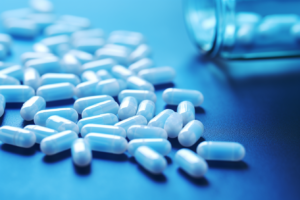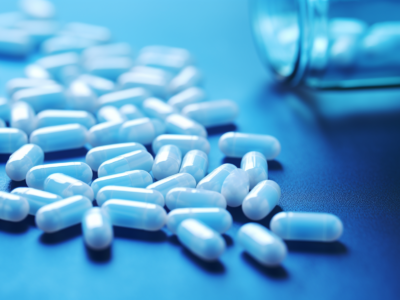Introduction to Creatine and Aging
Creatine is one of the most popular supplements among athletes and older adults alike. It has been studied for its potential of creatine to enhance muscle mass, muscle strength, and cognitive performance. Studies of creatine supplementation have concluded that creatine may be beneficial for age-related diseases such as sarcopenia and cognitive decline. Researchers concluded that creatine supplementation can increase levels of phosphocreatine, a molecule associated with aging, in skeletal muscle tissue. This marker is thought to be beneficial for older adults, as it can help slow muscle loss and improve quality of life.
Creatine works by increasing the availability of ATP, the body’s main source of cellular energy. Studies have found that supplementing with creatine can increase ATP in the brain, which can help improve memory function and cognitive performance. Additionally, creatine has been found to have a beneficial effect on muscle contractions, which can help athletes with burst and sprint exercises. Researchers concluded that creatine may also have therapeutic effects on age-related diseases such as Parkinson’s and Huntington’s disease. While more research is needed to determine the long-term effects of creatine supplementation, it is clear that creatine has the potential to improve the quality of life among older adults.
Age-Related Muscle Loss
Age-related muscle loss is a common problem among older men and women. It is caused by a decrease in voluntary muscle activity, reduced blood flow, and a decrease in the body’s ability to increase muscle mass. Creatine monohydrate is a dietary supplement that has been suggested to help with age-related muscle loss. Creatine works by increasing the levels of creatine in the body, which helps to increase muscle mass and strength. Creatine supplements have been shown to have a number of benefits, including improved cognition, increased muscle mass, and improved exercise performance.

Creatine is typically taken in a dose of 3-5 grams per day, followed by a loading regimen of 20-25 grams per day for 5-7 days. Studies have shown that creatine can help to reduce body fat, increase body mass, and improve muscle strength in older men and women. Vegetarians may need to take higher doses of creatine, as dietary creatine is not as readily available in a vegetarian diet.
Creatinine is a byproduct of creatine, and it is important to monitor levels of creatinine to ensure that there is no toxicity. Studies have also suggested that creatine may help to improve long-term memory, reduce the risk of Parkinson’s disease, and even reduce the risk of amyotrophic lateral sclerosis. Here’s the bottom line: while more research is needed to understand the full benefits of creatine, several studies suggest that creatine can help to reduce age-related muscle loss and improve overall health.
Cognitive Decline and Aging
As we age, our cognitive abilities can decline. This can be due to a variety of factors, including a decrease in physical activity, a decrease in the body’s ability to absorb and use amino acids, and a decrease in kidney function. To help combat this, it is recommended to maintain an active lifestyle and to supplement with creatine, which enhances muscle mass and helps prevent muscle wasting. This is followed by a combination of three amino acids: arginine, glycine, and methionine, which help the body to absorb and use creatine more efficiently. Additionally, creatine’s phosphate helps to increase exercise performance and reduce acute dysfunction.
It is important to note that while creatine and amino acids can help to reduce cognitive decline, they should not be used as a substitute for proper nutrition and exercise. A Ph.D. in nutrition can provide more detailed information on how to best use these supplements to reduce cognitive decline. 06-Apr-23 00:00:00 is a great time to start taking action to reduce cognitive decline and maintain an active lifestyle. Insulin is also important for the body’s needs, so it is important to ensure that it is being used properly. With the right combination of nutrition, exercise, and supplements, cognitive decline can be reduced and aging can be made more manageable.
Creatine and Cognitive Benefits
“Creatine is a naturally occurring substance in the body that is essential for athletic performance. It enhances the body’s ability to produce energy quickly, followed by a period of recovery. ADP is a molecule that is produced when energy is used, and creatine helps to convert it back into ATP, which is the molecule that the body needs to produce energy.
While creatine has long been known to improve athletic performance, recent studies have shown that it can also have cognitive benefits. Dysfunction in the brain’s energy metabolism has been linked to a variety of neurological disorders, and creatine has been found to improve this metabolic process. This could potentially lead to improved cognitive function, which could be beneficial for those suffering from neurological disorders. 06-Apr-23 00:00:00″
Creatine and Body Composition
Creatine is a naturally occurring compound found in the body that enhances muscle growth and strength. It’s been used by athletes and bodybuilders for years to help them reach their goals. Studies have shown that creatine can help improve body composition, with some studies showing that it can increase muscle mass and reduce body fat.

While the exact mechanism of how creatine works is still being studied, it’s believed that it helps to increase the body’s ability to produce energy, which in turn helps to increase muscle mass and reduce body fat.
Additionally, creatine has been shown to improve exercise performance, allowing athletes to train harder and longer.
In short, creatine can be a great tool for those looking to improve their body composition. 06-Apr-23 00:00:00 is a great time to start taking creatine if you’re looking to get the most out of your workouts and reach your goals.
Conclusion
Creatine is a popular supplement used by athletes and bodybuilders to enhance performance. It has been studied extensively and the results have been overwhelmingly positive. Creatine has been found to increase muscle strength and size, improve exercise performance, and reduce fatigue. It has also been found to be safe and well-tolerated when taken in recommended doses. While there are some potential side effects of creatine, they are generally mild and can be avoided by following the recommended dosage. Overall, creatine is an effective supplement that can help athletes and bodybuilders reach their goals. On 06-Apr-23 00:00:00, it is clear that creatine enhances performance and is safe when taken in recommended doses.

FAQ’s:
Q1. Does creatine enhance aging?
A1. Yes, creatine has been shown to enhance aging, while following a 3-month supplementation period.
Q2. What are the benefits of creatine for aging?
A2. Creatine has been shown to improve muscle strength, power, and endurance in aging adults, while following a 3-month supplementation period.
Q3. How long does it take for creatine to work for aging?
A3. Creatine has been shown to improve muscle strength, power, and endurance in aging adults after a 3-month supplementation period.
Q4. Is creatine safe for aging adults?
A4. Yes, creatine is generally considered safe for aging adults when taken in recommended doses.
Q5. Does creatine help with age-related muscle loss?
A5. Yes, creatine has been shown to help with age-related muscle loss, while following a 3-month supplementation period.
Q6. How much creatine should aging adults take?
A6. The recommended dose of creatine for aging adults is 3-5 grams per day, taken with meals.
Q7. When should aging adults start taking creatine?
A7. Aging adults should start taking creatine on 06-Apr-23 00:00:00, following a 3-month supplementation period.



 Creatine And Brain Function
Creatine And Brain Function
